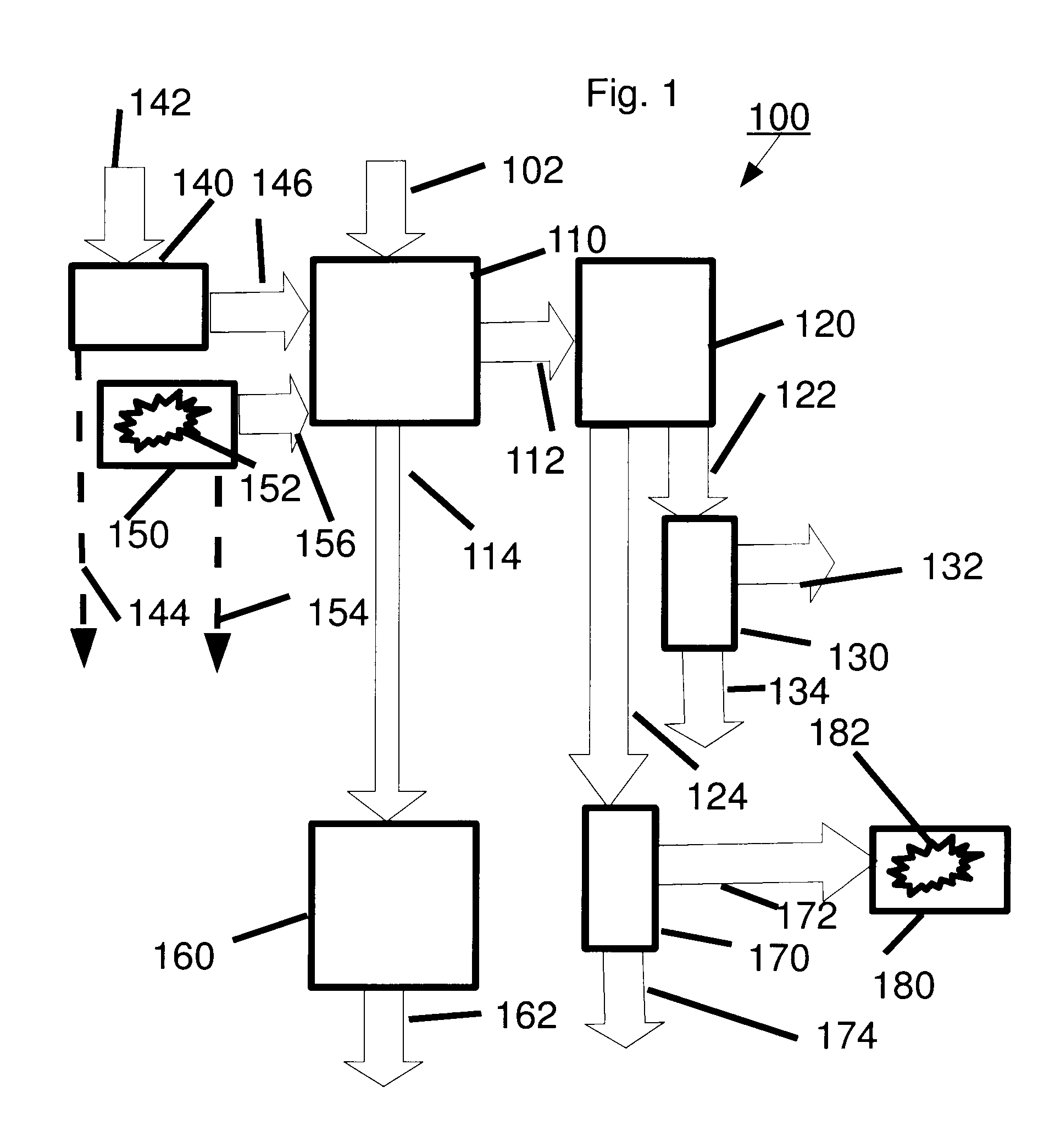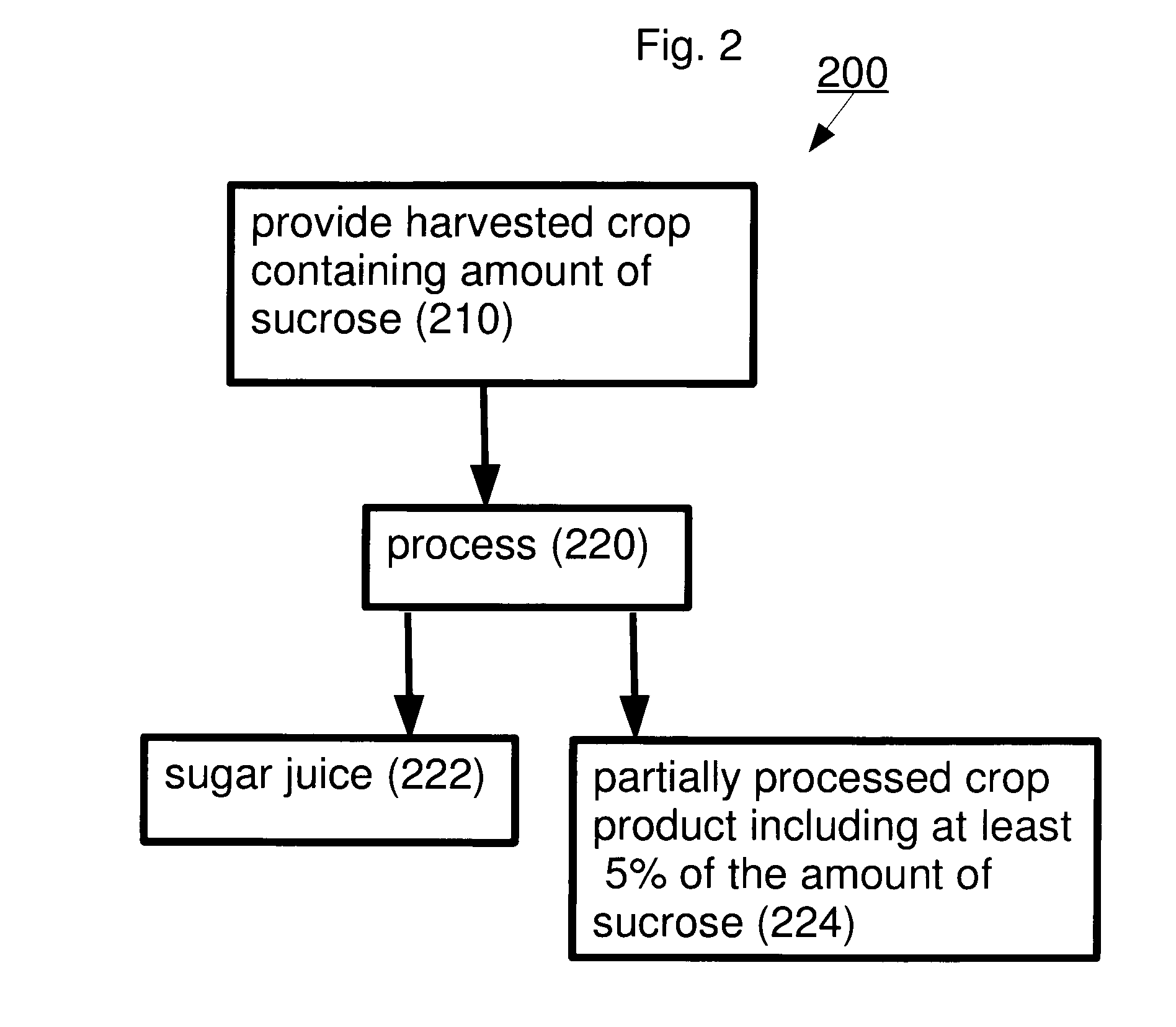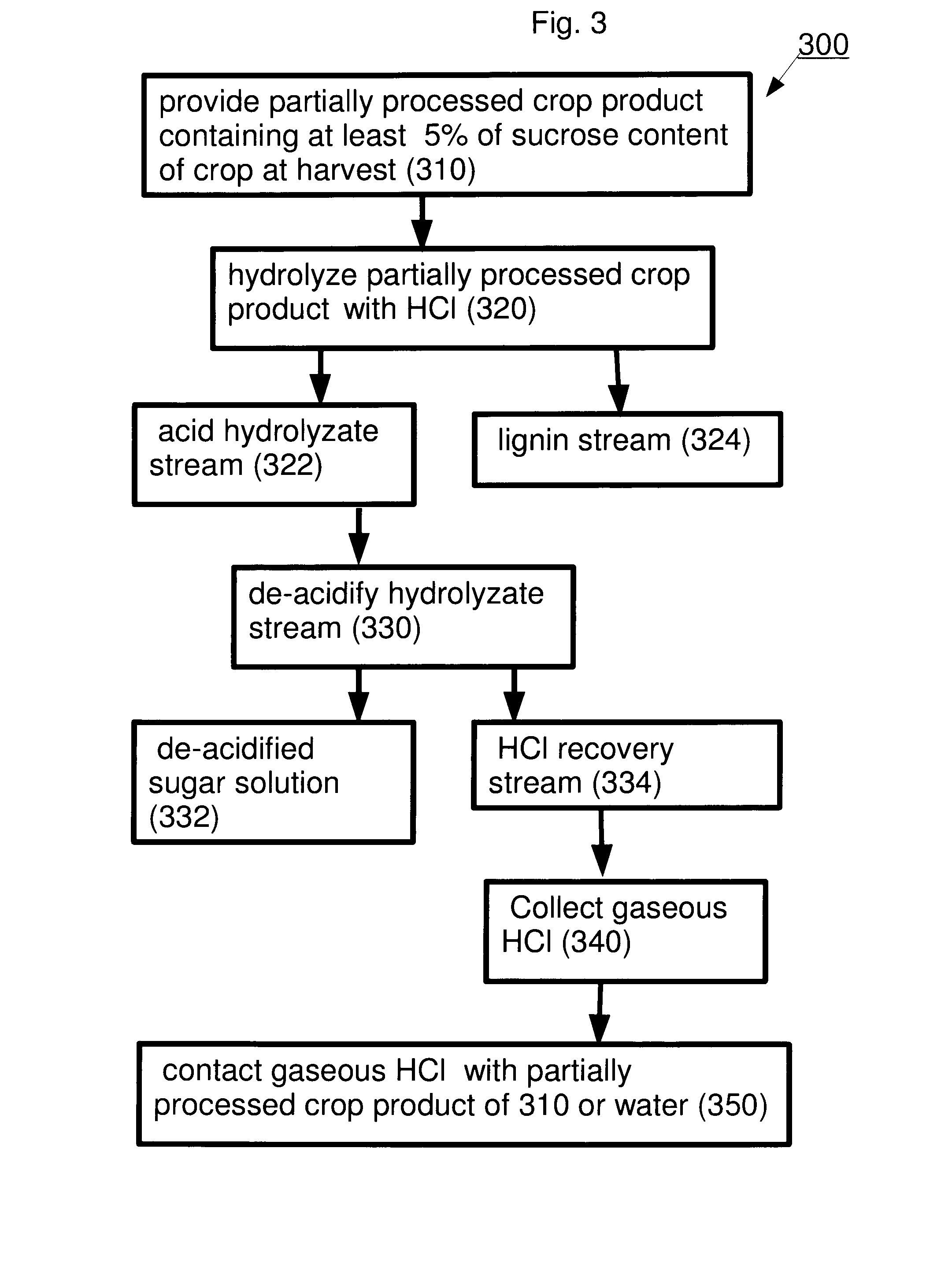Methods and systems for processing a sucrose crop and sugar mixtures
a technology of sucrose crop and sugar mixture, applied in the field of sugar production, can solve the problems that the existing methods for producing fermentable carbohydrates from bagasse are not considered industrially feasibl
- Summary
- Abstract
- Description
- Claims
- Application Information
AI Technical Summary
Benefits of technology
Problems solved by technology
Method used
Image
Examples
example 1
Saccharide Composition of Hydrolyzate Prepared from Conventional Sugar Cane Bagasse
[0346]In order to establish a baseline composition for hydrolyzate composition in terms of specific sugars, a de-acidified hydrolyzate prepared from conventional sugar cane bagasse was analyzed.
[0347]The bagasse hydrolyzate was produced by processing the bagasse in a six stage hydrolysis reactor series in a counter-current operation as described in co-pending U.S. provisional application 61 / 48377 filed May 9, 2011 and entitled “Hydrolysis systems and methods which is fully incorporated herein by reference.
[0348]Briefly, an aqueous solution of 42% HCl was introduced continually at a temperature of 10-15° C. for 24 hours. The hydrolyzate was collected, HCl was removed by extraction and the de-acidified hydrolyzate was concentrated to give a sugar composition.
[0349]The composition was analyzed by HPLC (Varian Prostar® and a Rezex RSO-Oligosaccharide Ag+, 10×200 mm column and pre-column) at 80° C., Mobile...
example 2
Inversion of Sucrose in the Presence of HCL
[0353]In order to examine the effect of concentrated HCL on sucrose, an aqueous solution containing 1% Sucrose and 35% HCl was prepared under refrigeration.
[0354]Sucrose was dissolved in water and placed in a beaker containing ice which was stored at −20 degrees C. for approximately 5-10 min to produce a sucrose solution.
[0355]An HCl solution (42.7% HCl was used) was weighed into a 50 ml round bottom flask inside a beaker containing ice and was also stored at −20 degrees C. for approximately 2-3 min.
[0356]The HCl solution was added to the sucrose solution while still cold and the resultant acidified sucrose mixture was shaken 3 times and put back into a beaker containing ice. Samples from this solution were taken into 4 ml vial (also kept on ice) and transferred to a “mock hydrolysis” at 11° C. for 6 hr. These conditions were selected to mimic those which sucrose would be likely to encounter in a hydrolysis reactor as described in Example 1...
example 3
Saccharide Composition of Hydrolyzate Prepared from Sucrose Enriched Sugar Cane Bagasse
[0363]This hypothetical example projects the results of hydrolysis conducted as in Example 1 using sucrose rich bagasse prepared according to various exemplary embodiments of the invention. Hypothetical results are summarized in Table 3. Each of hypothetical sample numbers 1 through 5 presumes a 100 kg input of “bagasse” based upon combination of results from example 1 and 2 above.
[0364]Sample 1 is a standard bagasse of the type described in example 1, containing substantially no sucrose. Samples 2 through 5 presume bagasse containing added sucrose from 5% to 30% as indicated. According to various exemplary embodiments of the invention this sucrose would be added by modifying initial processing of the cane to cause a corresponding amount of sucrose to remain in the “bagasse” portion. This material is referred to throughout the specification as “partially processed” crop product.
[0365]The hypotheti...
PUM
| Property | Measurement | Unit |
|---|---|---|
| temperatures | aaaaa | aaaaa |
| temperatures | aaaaa | aaaaa |
| weight/weight ratio | aaaaa | aaaaa |
Abstract
Description
Claims
Application Information
 Login to View More
Login to View More - R&D
- Intellectual Property
- Life Sciences
- Materials
- Tech Scout
- Unparalleled Data Quality
- Higher Quality Content
- 60% Fewer Hallucinations
Browse by: Latest US Patents, China's latest patents, Technical Efficacy Thesaurus, Application Domain, Technology Topic, Popular Technical Reports.
© 2025 PatSnap. All rights reserved.Legal|Privacy policy|Modern Slavery Act Transparency Statement|Sitemap|About US| Contact US: help@patsnap.com



